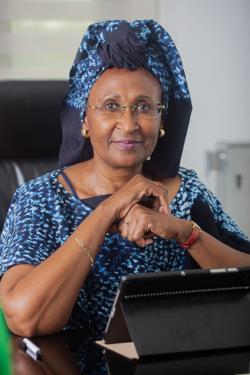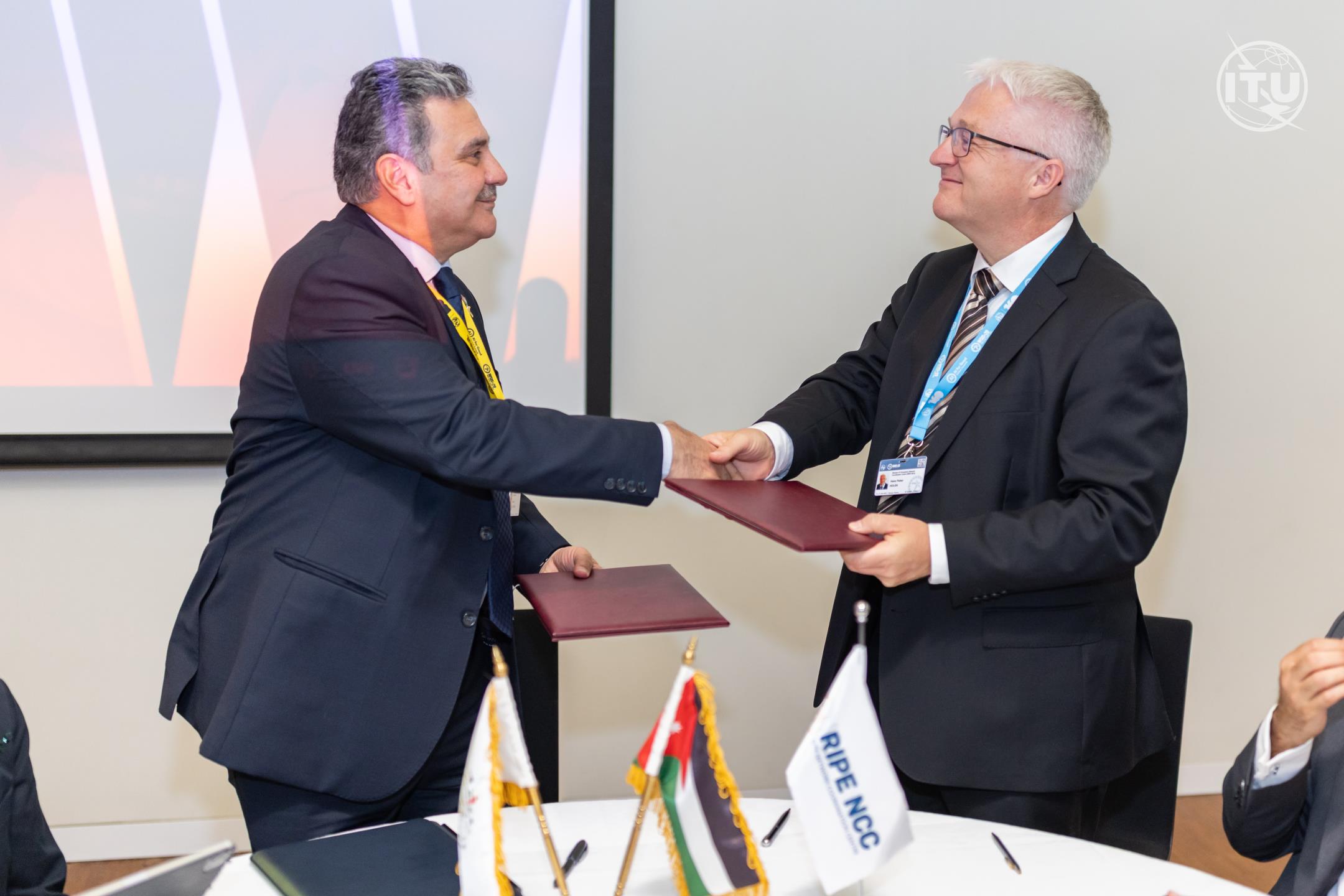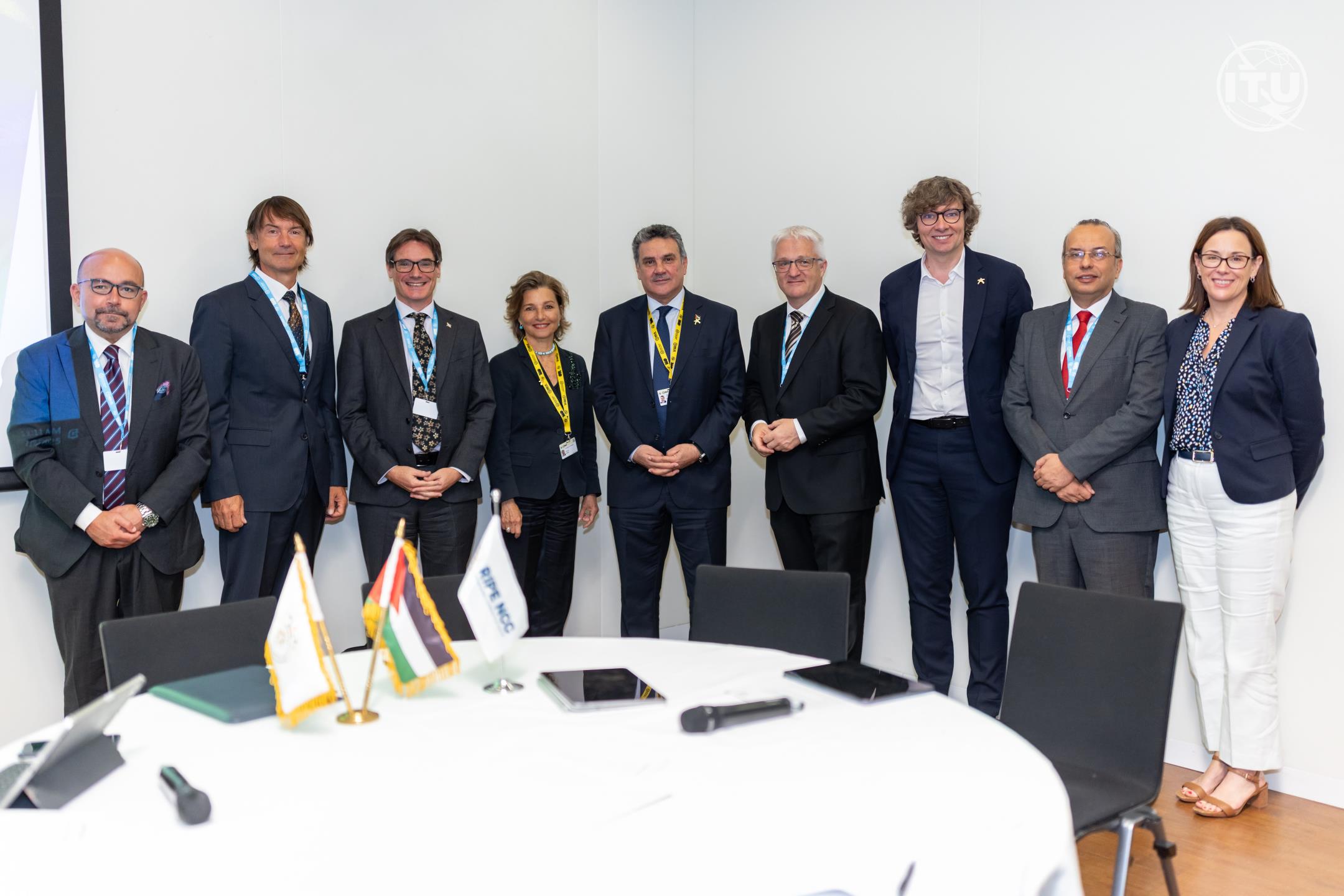Governments and Technical Community: A Successful Model of Multistakeholder Collaboration for Achieving the SDGs
The Réseaux IP Européens Network Coordination Centre (RIPE NCC) and the Telecommunication Regulatory Authority in Jordan (TRC)
Session 331
In the true spirit of WSIS multistakeholder collaboration, this high-level session highlights how partnerships between the technical community and governments are translating shared digital development goals into measurable impact.
Through concrete global examples, ranging from IPv6 and routing security deployment to capacity building and public policy Internet-related issues, the session will illustrate how collaborative Internet infrastructure efforts are advancing the Sustainable Development Goals (SDGs), particularly in connectivity, capacity building, innovation, and resilience.
Participants will gain insights into best practices where public policy, technical expertise, and local needs converge to deliver transformative digital outcomes. The discussion will also examine the enabling role of regional and international cooperation, highlighting how inclusive governance models can ensure an open, secure, and sustainable Internet, the engine of digital ecosystems for all.










-
 C1. The role of governments and all stakeholders in the promotion of ICTs for development
C1. The role of governments and all stakeholders in the promotion of ICTs for development
-
 C2. Information and communication infrastructure
C2. Information and communication infrastructure
-
 C3. Access to information and knowledge
C3. Access to information and knowledge
-
 C4. Capacity building
C4. Capacity building
-
 C5. Building confidence and security in use of ICTs
C5. Building confidence and security in use of ICTs
-
 C6. Enabling environment
C6. Enabling environment
-
 C11. International and regional cooperation
C11. International and regional cooperation
This session is strongly aligned with several WSIS Action Lines, particularly C1 (the role of governments and all stakeholders), C2 (information and communication infrastructure), C4 (capacity building), and C11 (international and regional cooperation). By showcasing successful collaboration between the technical community and governments, the session reflects the essence of multistakeholder engagement in advancing digital development. Additionally, real-world examples of joint efforts in IPv6 and routing security deployment, connectivity and Internet Exchange Points (IXPs), and capacity development demonstrate tangible progress towards C3 (access to information), C5 (building confidence and security in ICTs), and C6 (enabling environment).
-
 Goal 4: Ensure inclusive and equitable quality education and promote lifelong learning opportunities for all
Goal 4: Ensure inclusive and equitable quality education and promote lifelong learning opportunities for all
-
 Goal 8: Promote inclusive and sustainable economic growth, employment and decent work for all
Goal 8: Promote inclusive and sustainable economic growth, employment and decent work for all
-
 Goal 9: Build resilient infrastructure, promote sustainable industrialization and foster innovation
Goal 9: Build resilient infrastructure, promote sustainable industrialization and foster innovation
-
 Goal 10: Reduce inequality within and among countries
Goal 10: Reduce inequality within and among countries
-
 Goal 16: Promote just, peaceful and inclusive societies
Goal 16: Promote just, peaceful and inclusive societies
-
 Goal 17: Revitalize the global partnership for sustainable development
Goal 17: Revitalize the global partnership for sustainable development
This session contributes to the SDGs by showcasing how multistakeholder partnerships between technical community and governments drive progress across several SDGs. Through collaborative efforts in building resilient Internet infrastructure, advancing digital skills, and fostering secure and inclusive access, the session supports Goal 4 (quality education), Goal 8 (economic growth), Goal 9 (infrastructure and innovation), and Goal 10 (reducing inequalities). It also supports Goal 16 by promoting inclusive and accountable digital governance and Goal 17 through revitalised global and regional cooperation.


